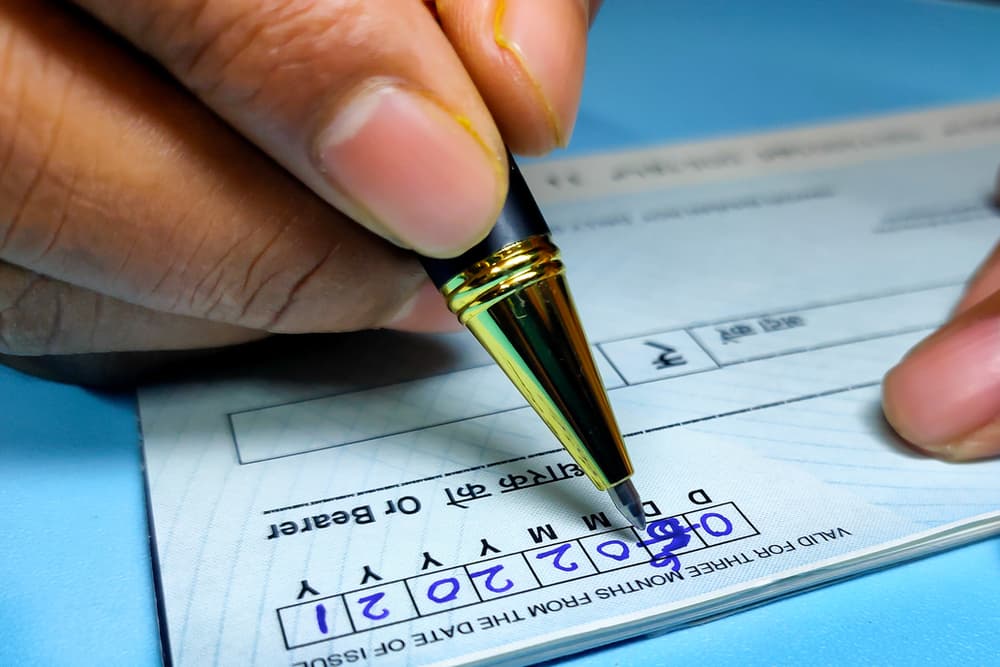Six Reasons Why Your Cheque May Bounce
Cheque bounce is a serious offence, and here’s how to avoid it
Cheque bounce is a serious offence, and here’s how to avoid it

While many people may have switched to digital payment modes today, given their ease and speed, some senior citizens may still find cheques convenient for most ordinary transactions.
However, before passing on a cheque to someone, it is essential to remember a few points to ensure the payee receives the pledged amount because a bounced cheque could land the payer in serious trouble. Check bounce is an offence, and the penalty could be a fine, imprisonment or both, depending on the reason and seriousness of the crime.
Advertisement
But sometimes, it may not be a deliberate act. For instance, suppose you have issued a post-dated cheque to someone, and when the transaction date finally comes, your bank account may not have sufficient balance to honour it. Therefore, asking the payee to remind you about the due date before presenting the cheque to the bank is vital, especially if you are forgetful.
As a rule, banks check all the details before depositing a cheque for clearing, and in case of any discrepancy, they may reject it. Let’s explore some of the reasons why your check may bounce.
Advertisement
Reasons Why A Cheque Bounces Or Gets Dishonoured
Insufficient Fund:
If the cheque is rejected due to ‘insufficient funds’, it attracts a penalty on the issuer. It could also be a criminal offence under the Negotiable Instrument Act, 1881.
The payee may prosecute the payer if the cheque bounces; in some cases, it may attract imprisonment besides a fine.
As per the act, the imprisonment may extend up to two years. The payee could ask the payer to reissue a fresh cheque or take legal action following due formalities.
However, the charges and other penalties may vary from bank to bank, depending on the reasons for the cheque bounce. They may have fixed or variable fines for different cheque amounts.
Signature Mismatch:
A signature mismatch could also be a reason for a cheque bounce. In that case, you may have to issue a new cheque with the correct signature. It is always good to go to the bank and verify your signature if it does not match.
Cheque Date:
As per the Reserve Bank of India (RBI), a cheque remains valid for three months. If a cheque is presented to the bank after three months from the date mentioned on the cheque, it will be rejected. Also, it won’t be cleared if the cheque is post-dated.
Difference In Number And Words:
The cheque can also be rejected if the amount written in words and the numbers do not match. For example, if the cheque amount in figures is Rs 100000, and in words, it is ‘ten thousand’, the bank will reject it.
Damaged Or Torn Cheque:
If the cheque is torn or damaged, it could be rejected. So, one should avoid folding it to protect it from such damage.
Overwriting:
Overwriting on the cheque leaf could also lead to rejection as it can raise the bank’s suspicion.
What Happens When A Cheque Bounces
Banks levy penalties when a cheque bounces, as stipulated under the law, depending on the reasons. Fines due to insufficient balance may vary from bank to bank. For instance, as per their websites, Axis Bank and HDFC Bank charge around Rs 500 for an inadequate account balance. Cheque bounce due to insufficient funds may also attract imprisonment of up to two years.
Finally, cheque bounce is a major offence and should be avoided at all costs, regardless of the circumstances. Most of the reasons discussed are easily avoidable if the payer pays attention to the specific details as registered with the bank and takes a few simple safeguards, like remembering the date or the account balance, before the cheque goes for processing.
Banking has come a long way with the advancement of technology, which led to the emergence of various user-friendly modes of money transfer. However, before the digitalisation of banking processes, physical cash and cheque were the primary modes of transaction.
Advertisement
The Finance Ministry had declared a 4 per cent hike in dearness relief (DR) from 42 per cent to 46 per cent for the central government pensioners, effective July 1, 2023.
If you are looking for a loan against a property that you have built over a lifetime for your children or for other things in your retirement years, here are things you should keep in mind
Find out how seniors can secure a stable and worry-free retirement by unlocking the power of passive income. Here are some smart strategies
Get all the latest stories delivered to your inbox
Advertisement
Get all the latest stories delivered to your inbox